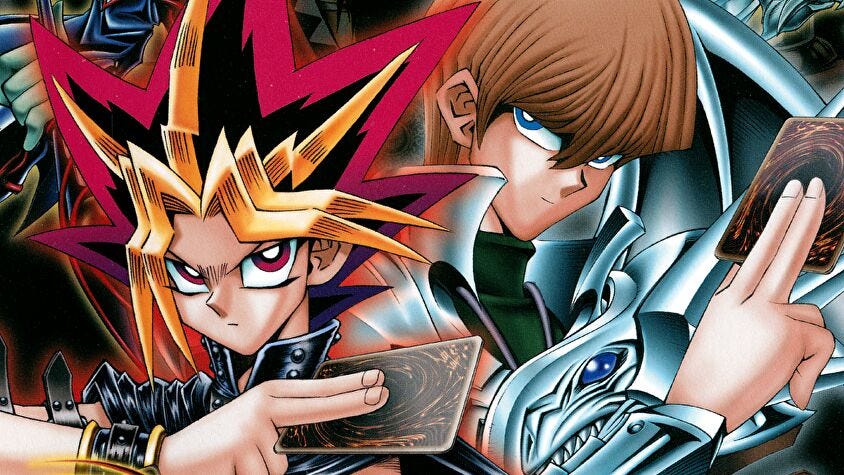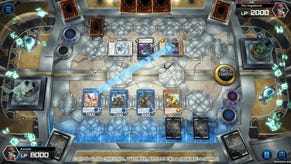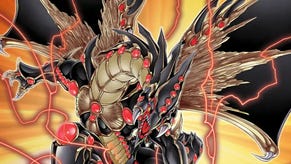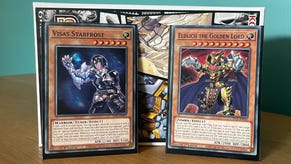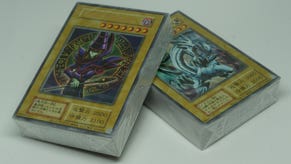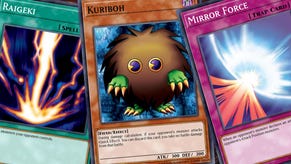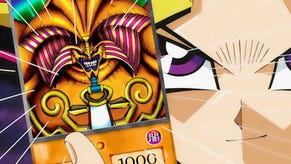5 best Yu-Gi-Oh! video games
Console duels.
Yu-Gi-Oh! as a TCG is unique for how interconnected it is with the rest of its vast multimedia franchise. After all, the card game originated from the art of late mangaka Kazuki Takahashi, which spawned an anime that has continued in various incarnations for two decades. Then there’s the major link between the virtual and physical world of the Yu-Gi-Oh! TCG, and the various ways players have indulged their love of the game in the digital world.
With this year’s release of Yu-Gi-Oh! Master Duel and Cross Duel on mobile, we thought we’d run through the best Yu-Gi-Oh! video games from over the past 20 years.
Yu-Gi-Oh! video games
- Yu-Gi-Oh! Forbidden Memories
- Yu-Gi-Oh! The Duelist of the Roses
- Yu-Gi-Oh! GX: Spirit Caller
- Yu-Gi-Oh! 5D's Wheelie Breakers
- Yu-Gi-Oh! Master Duel
Not all of the digital adaptations featured in this list are entirely accurate to the experience of playing Yu-Gi-Oh! in real life. These games don’t always strictly follow the rules, and some tear the rulebook to shreds for bizarre takes on this recognisable franchise and its characters. We can’t recommend most of these games for players wanting a digital method of learning the ropes, and copying their strategies will likely get you kicked out of most tournaments.
However, all these Yu-Gi-Oh! video games do represent the most distinct and fun ways to indulge in the game away from the real cards. They blend anime, story and gameplay together for memorable experiences, sometimes offering gimmicks that make these far more than your bog-standard dueling experience.
1. Yu-Gi-Oh! Forbidden Memories
Nostalgic (forbidden) childhood memories!
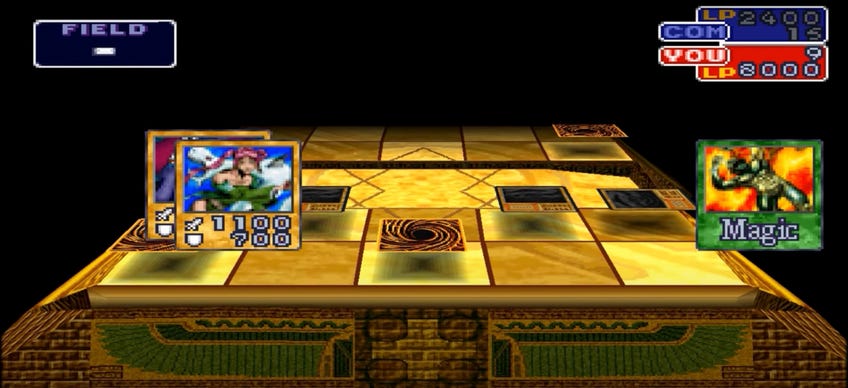
Starting with the first title in the franchise to earn an international release, Yu-Gi-Oh! Forbidden Memories on the original PlayStation marked the first time that the game had successfully been adapted to consoles in a satisfying manner. It was far from the first Yu-Gi-Oh! video game to digitise the game for fans around the world, however; that honour goes to a series of Japan-only Game Boy titles and a 1998 PlayStation release that didn’t even adapt the card game, instead being an adaptation of the oft-forgotten Capsule Monsters that kickstarted Yu-Gi-Oh! before the TCG rose to prominence.
Yet it was Forbidden Memories that laid the groundwork for the necessary mechanics of a fully-featured Yu-Gi-Oh! console game with a slight twist, giving these intricate systems the space to breathe within a dense world. The game takes the blend of ancient Egyptian lore and modern-day storytelling to the extremes by setting its story primarily in Ancient Egypt. The Pharaoh from Yugi’s Millennium Puzzle tells the story of the collection of the Millennium Items in ancient times between Atem and Seto. Only brief sections of the game actually centre Yugi Moto.
The duel mechanics differ slightly, requiring decks be made up of exactly 40 cards and removing tribute summons, all while introducing the idea of fusing cards in your hand without Polymerization with a random chance of success for better cards. Then there are the ‘Guardian Stars’ alignments that similarly influence conflict. Otherwise, the duels remain familiar to TCG players and even contains many of the cards available at the time of the game’s release in the early days of its existence.
This blend of a comprehensive (for the time) card database and story-driven duels make it one of the earliest, yet most memorable, Yu-Gi-Oh! video games in the franchise’s history.
2. Yu-Gi-Oh! The Duelist of the Roses
A card! A card! My kingdom for a card!
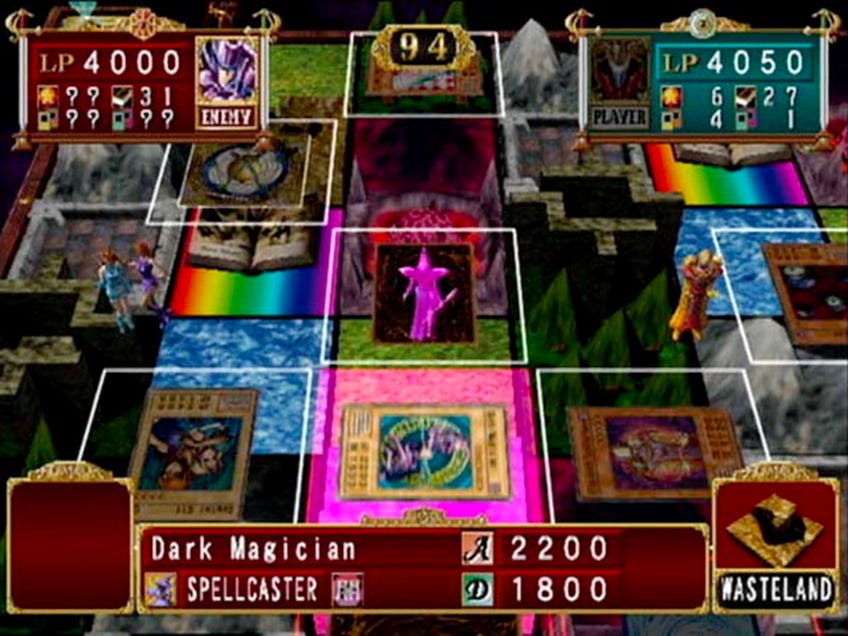
Did you grow up in the 2000s as a Yu-Gi-Oh! fan? If you did, Yu-Gi-Oh! The Duelist of the Roses is likely the video game you remember most. It’s one of the best-selling titles in the franchise at 1.4 million copies, releasing at the height of the PS2’s popularity and the franchise’s early success, and remains beloved for its twist on the formula by transforming the familiar dueling gameplay into a strategy title inspired by, of all things, the British War of the Roses between Lancaster and Yorkshire. Wait, what?
It’s fair to say that Duelist of the Roses is far from your bog-standard Yu-Gi-Oh! video game. This adaptation inserts characters from the original anime into the roles of real figures from British history (Yugi is Henry VII, Tea is Elizabeth of York, Joey is Christopher Urswick and so on) as we replay the war with an anime twist and a dash of Yu-Gi-Oh!
Rather than playing traditional duels, battles take place on a seven-by-seven grid where monsters move around the field to duel your opponent’s monsters in a quest to take down the Deck Leader and their life points. It’s also a game made more difficult by the requirement to use weaker decks, making every duel a challenge even before we discuss terrain advantage, special abilities and monster experience-based rank-ups.
It’s a complex game, but easily one of the most inventive. Only bearing passing resemblance to the TCG is hardly an issue when what’s on offer is an engaging experience in its own right that sees no need in being a true-to-life simulator of the real game. The historical setting only adds to this, adding weight to the Kaiba-Yugi rivalry defining early Yu-Gi-Oh! by placing it against real-life figures of the past, turning this chess-like style of play into an immersive title for anime fans unlike any other in the history of the series.
3. Yu-Gi-Oh! GX: Spirit Caller
Brush up your knowledge!
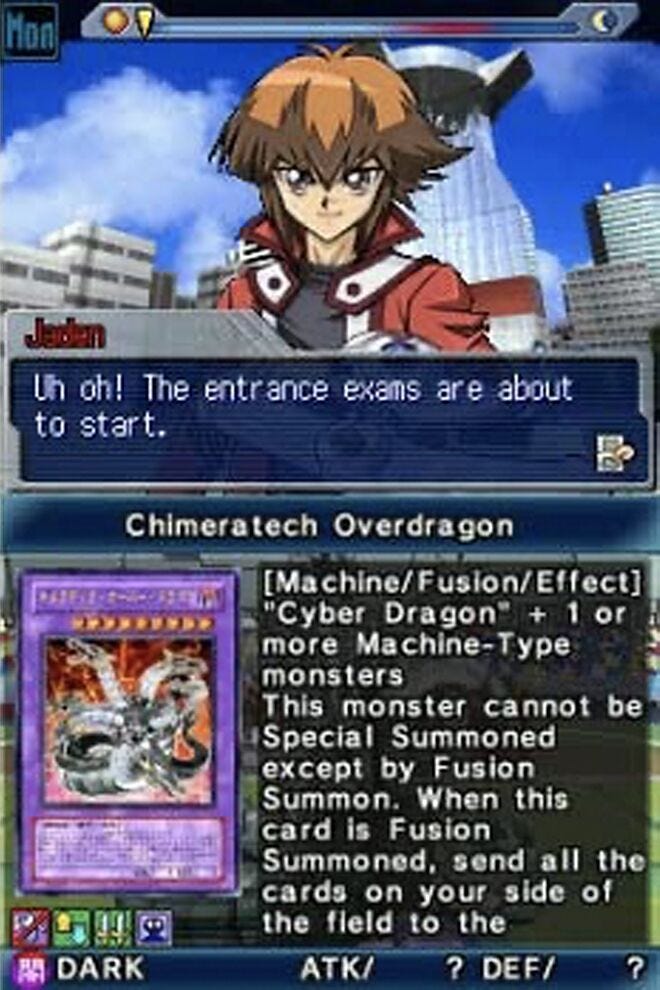
As the Yu-Gi-Oh! franchise matured, the video games sought to more accurately reflect the rules of the real game as a key selling point. While this does make these titles less exciting from a gameplay perspective, as World Championship annual releases sought to create a no-frills replication of TCG rules in a handheld form for the opportunity to play the game by-the-rules no matter where you were, some games did continue to have fun with the IP within this framework. Take Yu-Gi-Oh! GX: Spirit Caller: part duel sim, part… homework?
Spirit Caller is a story-driven Yu-Gi-Oh! experience where you become friends with Jaden Yuki and other characters from the Yu-Gi-Oh! GX anime’s Duel Academy, to the point of even customising your own avatar. Living in the Slifer Red dorms you receive emails directing you to the next stage of the story, customise your deck from the extensive card database - earning new cards from duels and purchasing packs with in-game money - and explore the island to duel and speak to fellow students. As this is a school you’ll even face Yu-Gi-Oh!-themed quizzes, recalling trivia such as the animal found on the card Rush Recklessly and rule specifics that you will need to pass in order to progress.
For a game released in the early years of the Nintendo DS’ lifespan, there is an impressive amount of content and utilisation of the console’s various features. The touch screen can be used for duels and navigating the map and menus, and duels play out with full 3D renderings for monsters. With exploration of the world of GX, a story placing you at the heart of the anime and duels accurate to the rules of the real game, this is an expansive and impressive title that stands as among the best handheld games in the franchise’s history.
4. Yu-Gi-Oh! 5D's Wheelie Breakers
A heart-racing duel
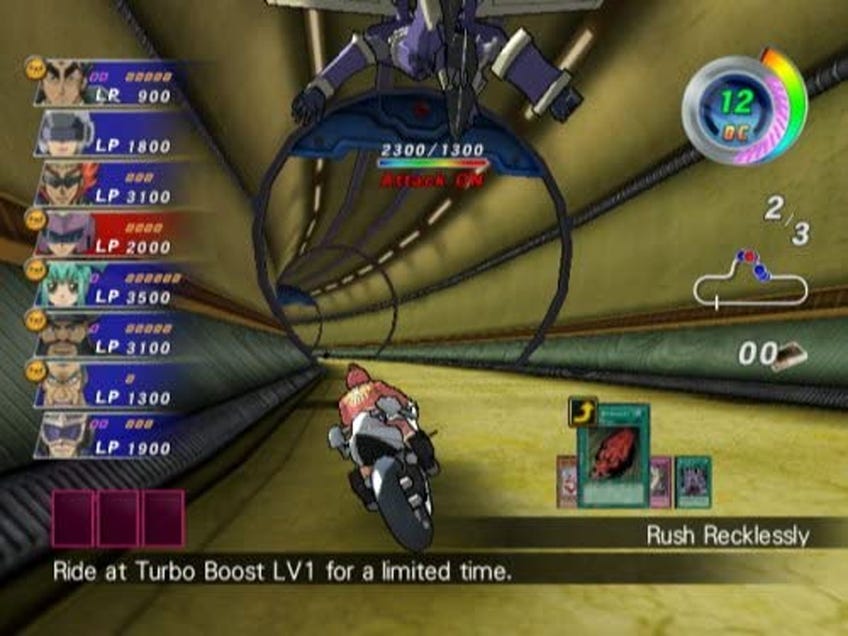
Sometimes, doing something different is enough to warrant some special attention, even if that twist on the formula doesn’t entirely pay off. It’s hard to agree whether Yu-Gi-Oh! 5D's is one of the best Yu-Gi-Oh! video games in the franchise as one constantly at risk of overwhelming the player with its chaotic interpretation of cardgames on motorcycles, but you almost have to applaud the effort and give the game a shot for its ambition alone.
5Ds introduced Synchro monsters to the series for the first time, while the anime challenged its characters to take on real duels from the seat of a motorbike. As much as the TCG was more than happy to bring these new powerful monsters into the game and bring about a seismic shift in the speed and intensity of dueling, publisher Konami was never going to encourage players to whip out their Stardust Dragon in the middle of the M1. So, the studio thought of a different solution in creating a driving game that’s part Mario Kart and part dueling simulator.
Unsurprisingly, it’s impossible to ask players to take part in all-out Yu-Gi-Oh! duels while also asking them to race around tracks on a bike. Instead, the game uses monsters, spells and traps like power-ups, attacking other drivers or boosting your own driving expertise. Even life points are implemented into this system, with players taking damage if hit and zero life points meaning defeat and a one-way trip to the back of the pack.
The issue is that, while Mario Kart has only a handful of power-ups to worry about, Yu-Gi-Oh! card pool creates hundreds of items to memorise, dodge and counter. At the risk of overcomplicating the road-based driving game the game still offers a fun and mechanically-sound racing game that nothing within the Yu-Gi-Oh! franchise even comes close to matching in terms of ambition.
5. Yu-Gi-Oh! Master Duel
No frills, all flair
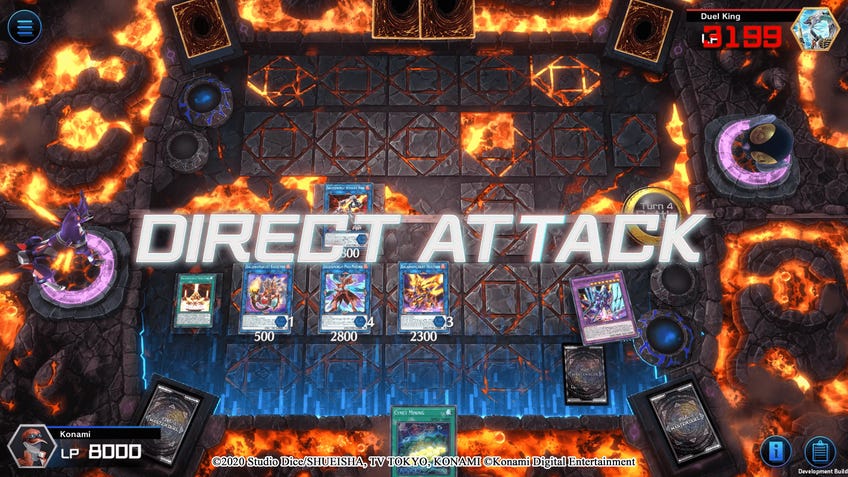
Yu-Gi-Oh! Master Duel released in early 2022 to much excitement, and for good reason. While titles like the Yu-Gi-Oh! World Championship and GX: Spirit Caller titles offered sim-like experiences accurate to real-world TCG rules with an exhaustive card database for players to use in their decks, they became outdated quickly. The promise of an online, constantly-updated simulator free for all was tantalising. Even without every card being available day-and-date with the real-world TCG, Master Duel offers by far the most expansive simulator experience in any official Yu-Gi-Oh! video game.
Master Duel does what it promises, but little more. Don’t expect the story mode of Spirit Caller or the weird mechanics of Duelist of the Roses. You can customise your duel field or dip into tutorials that mix strategy breakdowns with lore of the different archetypes, but this is a game for dueling other players, and isn’t looking to distract from that core experience. You can buy cards using in-game or real currency, craft cards and duel online with players around the world, but that’s why you’re here. Not to see Yugi Moto as a former king of England.
Still, for those who want a Yu-Gi-Oh! video game to replicate the TCG that can be played on just about any device you own, there’s nothing better than Master Duel. And is that not why we’re here? We should strive for more titles that play with our expectations, for sure, but most people want little more than the opportunity to duel other players in a virtual sitting, without the frills. If that’s what you’re after, Master Duel is the undisputed king and best game in the franchise for doing just that.
